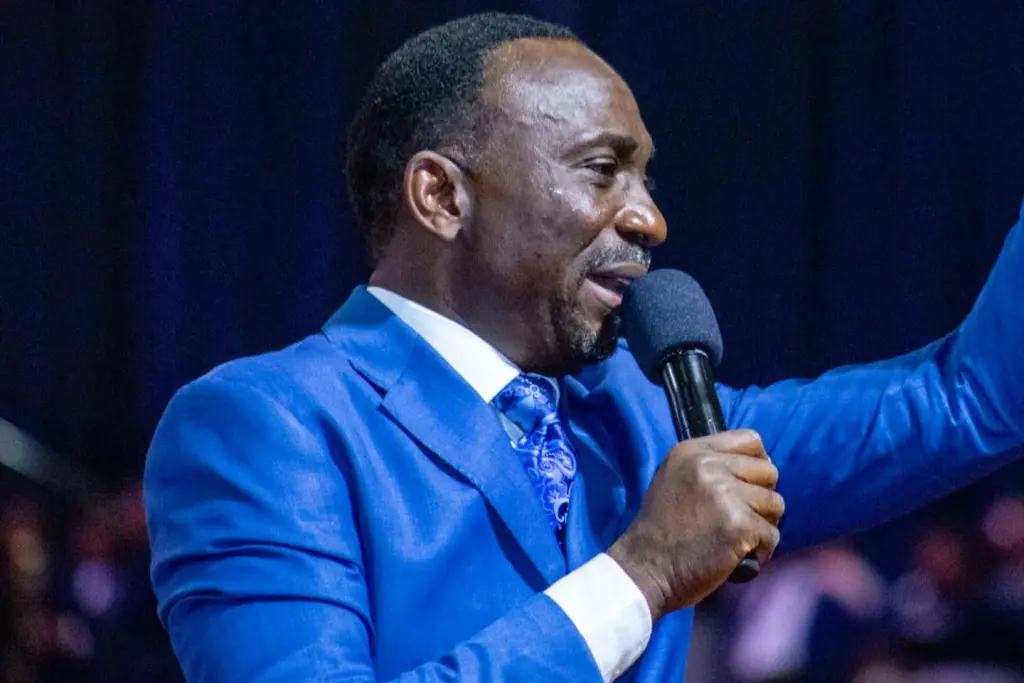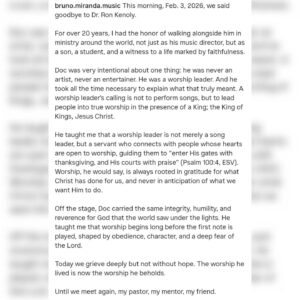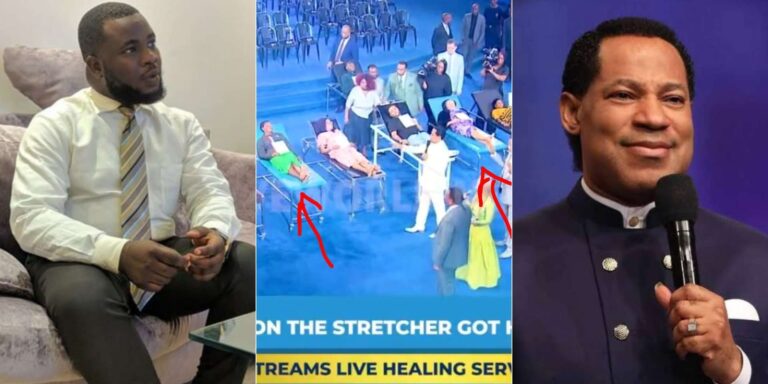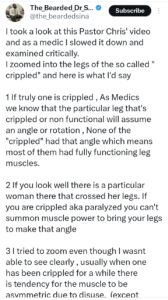Watch tthe video below:
Religion
Strong political will remains solution to end killings in Nigeria — Pastor Enenche

Pastor Paul Enenche, Senior Pastor, Dunamis International Gospel Centre, DIGC, Worldwide, has said that robust political will remains the solution to end senseless killings across the country.
Pastor Enenche stated this while addressing newsmen on Wednesday, at Yelewata Town, Guma Local Government Area of Benue State, stressing that there was no single justification for the killings which claimed scores of lives on June 14.
According to the cleric, the country needs a strong political will to end the ongoing senseless killings across the country, especially the Yelewata Town attack.
Enenche added that the solution to the killings lies with the country’s leadership, adding that the government at all levels must develop a strong political will to end it.
“The solution to this type of issue is the will in the hearts of the leadership of our nation, both at the federal and state levels.
“Leadership that has the will to do the right thing and that has the heart of the people should put anything political aside and look at realities on the ground.
“And to value human lives above every other consideration and do what is right, in the interest of the people, in the interest of their consciences and, in fact, that one day everybody will stand before God to give account of their lives to God,” he said.
The senior pastor reiterated that the people would continue to trust God for the nation’s leadership to demonstrate compassion for her citizens, adding that that he was in the state to sympathise with his people, especially those in Yelewata Town, who were attacked and killed in their deep sleep.
Religion
Gospel Legend Ron Kenoly Is Dead

Legendary gospel singer Ron Kenoly has passed away.
His death was confirmed on Monday, February 3, 2026, with tributes pouring in from gospel artistes across the world. He was 81 years old.

Religion
“Based On Medical Facts, I Don’t Believe This Is A Miracle” – Medical Doctor Reacts To Pastor Chris Oyakhilome’s Miracle Video (Watch)

A Nigerian medical doctor, Dr Sina, has publicly reacted to a viral miracle video involving Pastor Chris Oyakhilome, stating that based on medical facts, he does not believe the incident qualifies as a miracle.
A video of Pastor Chris Oyakhilome healing some people who were reportedly unable to walk had initially made the rounds, stirring different reactions.

In a detailed breakdown shared online, the doctor explained that he carefully reviewed the video, slowing it down and examining the movements of the individuals described as crippled.
According to him, several physical and neurological signs expected in paralyzed or long-term crippled individuals were absent.
Dr Sina noted that medically, a non-functional or paralyzed leg often presents with abnormal angles, rotations, or muscle wasting due to disuse. However, he claimed these features were not evident in the video.
He also pointed out instances where some individuals appeared to move their legs freely, including crossing them, which he said would be impossible for someone who is paralyzed.
He further argued that even in a scenario where healing occurred instantly, the brain would still need time to relearn movement, balance, and coordination. In his view, the immediate and spontaneous jumping seen in the video did not align with how neurological recovery typically works.
While emphasizing that he believes in miracles as a Christian, Dr Sina maintained that, from a medical standpoint, the video did not provide sufficient evidence to conclude that a genuine miracle had taken place.
He encouraged viewers to slow down the footage themselves and consult medical professionals for further evaluation.
His words …
“I took a look at this Pastor Chris’ video and as a medic I slowed it down and examined critically.
I zoomed into the legs of the so called ” crippled” and here is what I’d say
1 If truly one is crippled , As Medics we know that the particular leg that’s crippled or non functional will assume an angle or rotation , None of the “crippled” had that angle which means most of them had fully functioning leg muscles.
2 If you look well there is a particular woman there that crossed her legs. If you are crippled aka paralyzed you can’t summon muscle power to bring your legs to make that angle
3 I tried to zoom even though I wasnt able to see clearly , usually when one has been crippled for a while there is tendency for the muscle to be asymmetric due to disuse, (except they’ve been having physio) took a look at all of them well, even though difficult i didn’t see physical signs of being crippled.
4 Even if we assume they were crippled for a while. If they miraculously got new nerves and muscles cells.
Jumping off the bed, the brain and other organs will still have to remaster movement. Balance and a little stagger.
The jump was spontaneous and not looking like a need for remastering.
Were they really crippled from the beginning ?
5 Slow the video and zoom zoom and check the occasional movement of the lower limb muscles of some of them ( show your doctor friends) that shows signs of intact nerve and muscle control
So are they really crippled?
PS- crippled will mean paralyzed or Paraplegic ( medical word)
Do miracles exist? As a Christian yes.
But is this a miracle? Looking at medical facts evidenced i don’t believe it is a miracle denovo.
You can fact check yourself”
Check out his post …




Religion
Liars don’t last in ministry – Oyedepo warns pastors

The Presiding Bishop of the Living Faith Church Worldwide, also known as Winners Chapel, Bishop David Oyedepo, has warned pastors against lying in a bid to sustain or promote their ministries.
Speaking at the third service held at the church’s international headquarters, Canaanland, Ota, Ogun State, on Sunday during the final day of the 21-day fasting and prayer programme, Oyedepo said liars do not last in ministries.
“You won’t last in the ministry telling lies. I stand before God, I will never tell lies about what God did not do just to impress anyone,” he said.
The cleric emphasised the importance of holding firmly to the truth of the Scriptures and giving glory to God alone, noting that such commitment is what enables ministers to attain enviable heights.
He equally advised believers to keep their love for Jesus alive, saying total dependence on God guarantees victory over life’s challenges.
The bishop further shared a personal testimony, recalling how a close associate in Ile-Ife who was afflicted with insanity was restored after Scripture was read to him.
He affirmed his confidence in divine protection, declaring that no evil plan against him would succeed.
-
Business1 year ago
US court acquits Air Peace boss, slams Mayfield $4000 fine
-

 Trending1 year ago
Trending1 year agoNYA demands release of ‘abducted’ Imo chairman, preaches good governance
-

 Politics1 year ago
Politics1 year agoMexico’s new president causes concern just weeks before the US elections
-

 Politics1 year ago
Politics1 year agoPutin invites 20 world leaders
-

 Politics1 year ago
Politics1 year agoRussia bans imports of agro-products from Kazakhstan after refusal to join BRICS
-
Entertainment1 year ago
Bobrisky falls ill in police custody, rushed to hospital
-
Entertainment1 year ago
Bobrisky transferred from Immigration to FCID, spends night behind bars
-
Education1 year ago
GOVERNOR FUBARA APPOINTS COUNCIL MEMBERS FOR KEN SARO-WIWA POLYTECHNIC BORI




